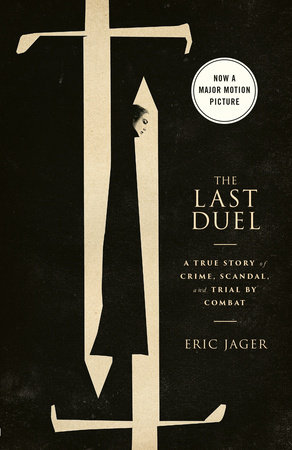The Last Duel (Movie Tie-In)
A True Story of Crime, Scandal, and Trial by Combat
Eric Jager
Paperback
September 13, 2005 | ISBN 9780767914178
AmazonBarnes & NobleBooks A MillionBookshop.orgHudson BooksellersPowell'sTargetWalmart
Ebook
October 12, 2004 | ISBN 9780767919616
AmazonApple BooksBarnes & NobleBooks A MillionGoogle Play StoreKobo
About the Book
The basis for the major motion picture starring Matt Damon, Jodie Comer, and Adam Driver, now streaming on Hulu!
The gripping true story of the duel to end all duels in medieval France as a resolute knight defends his wife’s honor against the man she accuses of a heinous crime
In the midst of the devastating Hundred Years’ War between France and England, Jean de Carrouges, a Norman knight fresh from combat in Scotland, returns home to yet another deadly threat. His wife, Marguerite, has accused squire Jacques Le Gris of rape. A deadlocked court decrees a trial by combat between the two men that will also leave Marguerite’s fate in the balance. For if her husband loses the duel, she will be put to death as a false accuser.
While enemy troops pillage the land, and rebellion and plague threaten the lives of all, Carrouges and Le Gris meet in full armor on a walled field in Paris. What follows is the final duel ever authorized by the Parlement of Paris, a fierce fight with lance, sword, and dagger before a massive crowd that includes the teenage King Charles VI, during which both combatants are wounded—but only one fatally.
Based on extensive research in Normandy and Paris, The Last Duel brings to life a colorful, turbulent age and three unforgettable characters caught in a fatal triangle of crime, scandal, and revenge. The Last Duel is at once a moving human drama, a captivating true crime story, and an engrossing work of historical intrigue with themes that echo powerfully centuries later.




